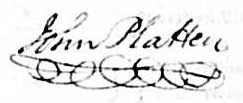
Dersingham Folk
All Rights reserved
Site by Mike Strange








During these years when John was such a noted figure in the town an important topic of conversation and argument were the Corn Laws introduced by Parliament in 1815. These imposed tariffs and restrictions on imported food and grain. They were designed to keep corn prices high in favour of domestic producers, to block the import of cheap corn and impose steep import duties. They were supported by Conservative landowners as they enhanced their profits and political power. But they raised food prices and the cost of living and hampered growth in other sectors due to the fall inthe spending power of the general public so were oppose by Whig Industrialists. However in 1845 the Great Irish Famine forced a resolution as there was an urgent need of new cheaper food supplies. Sir Robert Peel moved to repeal the Laws in parliament in 1846.
Sir George Bentinck, M.P. for King’s Lynn with Benjamin Disraeli argued fiercely that a repeal would weaken landowners socially and politically and destroy the “territorial constitution“ of Britain by empowering commercial interests. Disraeli predicted ruin for agriculture if they were repealed. But their arguments were in vain and Sir Robert Peel carried the day and the Corn Laws were repealed.
This was greeted with dismay by landowners and country gentlemen here but they wished to show their gratitude for the valiant if unsuccessful effort of Sir George Bentinck so a magnificent dinner was arranged to honour Sir George. Invitations were sent out by the Secretary of the Dinner Committee who was none other than Mr. John Platten.
It is well worth reading Lord Stanhope’s reply to the invite from John and the newspaper report of the dinner as they give a clear insight into the strength of feeling about the repeal and the sense of betrayal felt towards Sir Robert Peel. (Sir George and Disraeli got their revenge a few weeks later when they forced the resignation of Sir Robert Peel over a different Bill.)






